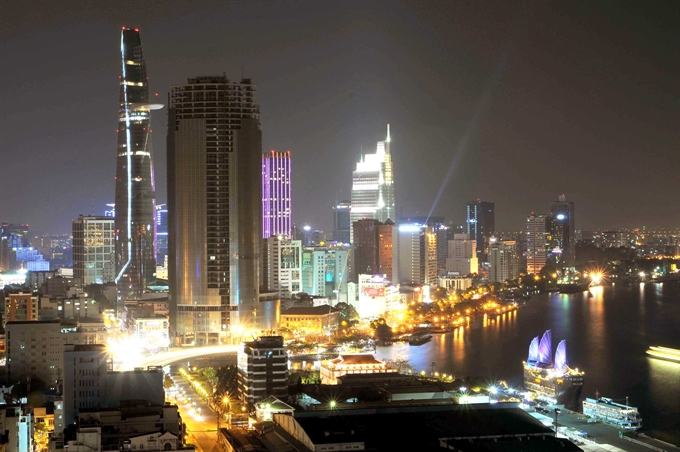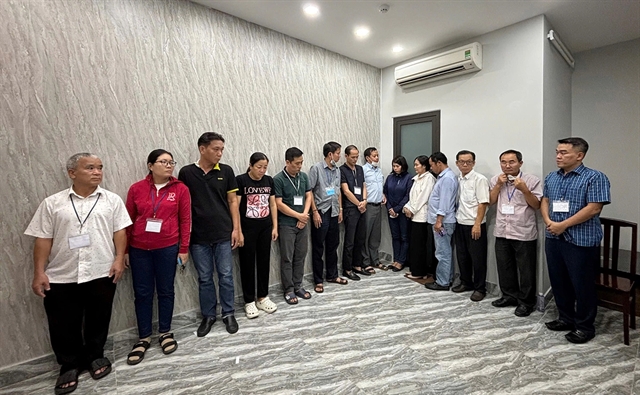 Society
Society

HCM City’s Party Committee plans to establish a steering committee to provide guidance on developing the southern metropolis into a smart city that would improve the quality of life of its residents.
 |
| A view of HCM City. City authorities plan to develop the southern metropolis into a smart city that would improve the quality of life of its residents. – VNA/VNS Photo An Hiếu |
HCM CITY — HCM City’s Party Committee plans to establish a steering committee to provide guidance on developing the southern metropolis into a smart city that would improve the quality of life of its residents.
The city’s Party Committee secretary, Đinh La Thăng, said the chairman of the HCM City’s People’s Committee would head the steering committee’s management board, which also includes an advisory board.
Speaking at a meeting between HCM City leaders and the Việt Nam Fatherland Front Central Committee on Sunday (July 24) in Hà Nội, Thăng assigned specific tasks for each agency and requested that an appropriate roadmap suited to the city rapid IT development be drawn up.
He said the city needed to integrate the city’s IT infrastructure to avoid wasteful usage. For example, thousands of security and traffic cameras would be connected under the smart city plan.
HCM City has implemented seven “breakthrough missions”, including smart city development, to realise the resolutions of the 12th Party Congress and the 10th City Party Committee Congress.
“Smart city plans should start now, instead of waiting for eligibility,” Thăng said.
Nguyễn Thiện Nhân, chairman of the Fatherland Front Central Committee, said a smart city would improve the living environment and economy, as well as reduce pollution.
“More importantly, with a smart city, residents will play a critical role in supervising Government activities,” he said.
Nhân asked the city leaders to create a short- and long-term smart city development project for the next 10 years.
He said the project should be completed in the next three or five years with three main components: a common database and plan; smart services such as traffic, healthcare and education; and improved citizen participation.
A database will include information about socio-economic development policies that can be accessed by businesses, citizens, managers and investors.
Nhân said that leaders should be less reactive and more proactive in management by forecasting and preventing problems before they occur.
Among the initiatives, smart systems of traffic management, parking-lot and toll collections and environmental management would update air, water, waste and noise parameters daily, quarterly and yearly.
Industrial, household and medical waste treatment policies would have five, 10 and 20 year plans, while a list of polluting businesses and sanctions would be made public.
In recent years, the HCM City’s People’s Committee and agencies have conducted many measures to develop a smart city, including creating a smart traffic management centre with more functions over the bus system, expected to be completed by 2018.
E-gov’t
HCM City is also setting up e-government, which will play a critical role in building a smart city through information and communication technology.
Speaking at a recent meeting on smart cities in HCM City, Lê Thái Hỷ, director of the city’s Department of Information and Communication, said a smart city would better manage traffic, power, healthcare and environmental systems, including waste treatment.
Hỷ said local agencies would work with enterprises to identify solutions that need to be carried out first. A detailed roadmap for implementation would then be created.
In smart traffic management, sensors and cameras would help collect real-time information about traffic density. Information would be transmitted to transport agencies, which can intervene quickly if accidents or congestion occur.
Sensor data would also be used in the management of waste treatment and power.
Experts said smart city development had become popular worldwide and residents’ awareness was of paramount importance in developing a smart city. — VNS




